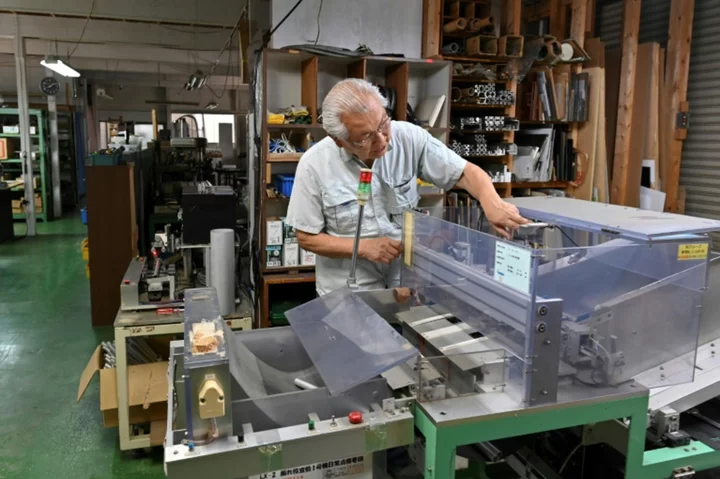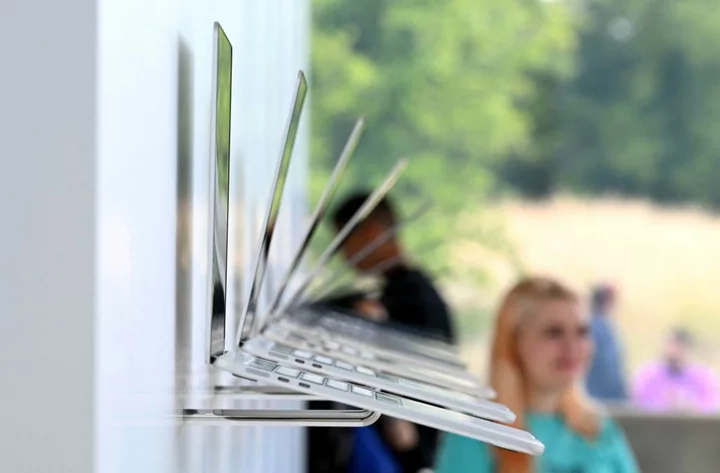
Singapore Money Laundering Case Embroils Its Banking Giants
Some of the biggest local and international banks in Singapore are becoming embroiled in one of the city-state’s
2023-08-30 20:25

Hawaii Wildfires: Maui Humane Society sends out SOS call for animals affected in devastation
The Maui Humane Society is facing a critical situation as they endeavor to shelter and care for animals impacted by the wildfires
2023-08-11 15:55

Edmunds compares: Kia Telluride and Mazda CX-90
The Kia Telluride has become a hit in the SUV space
2023-07-19 18:47

One in 10 Japanese are older than 80: government data
More than 10 percent of Japanese people have crossed 80 years or older for the first time, new official data showed, as the nation...
2023-09-18 11:50

How to watch RAI for free
SAVE 49%: ExpressVPN is the best service for unblocking free streaming sites. A one-year subscription
2023-09-12 12:59

How to Get Up to $30 in Credit to Spend on Amazon Prime Big Day Deals
Amazon Prime Big Day Deals is right around the corner and the online retail giant
2023-10-03 05:19

Airlines Bask in Sky-High Summer Fares While Airports Stay Stuck
Soaring ticket prices are lining the pockets of the world’s biggest airlines, providing balm to the economic wounds
2023-06-04 12:48

Porn icon Angela White reveals 'mortifying' decision which made her a better performer
Porn legend Angela White has revealed that an decision early into her career in the industry ultimately helped her become a better performer even though it was "mortifying." In a recent appearance on the Pillow Talk podcast the 38-year-old Australian star recently made news after it was reported that she was hospitalised after acting in a particularly long scene, something which she later claimed was "blown out of proportion." Now White has claimed that one of the things that made her better at her job was the fact that she used to edit herself. Talking to the Pillow Talk hosts, White stated: "Early on, I edited my own scenes, so it made me a better performer. I directed my own scenes." Sign up to our free Indy100 weekly newsletter She also stressed to co-hosts Whitney Cummings and Ryan Pownall: "It's mortifying in the beginning because you see everything you do terribly wrong. But it just makes you a better performer. You learn you shouldn't be positioning my body in [this or] that way." She added: "Very small micro movements makes the biggest difference in porn... It's not just about looking into the camera." Elsewhere, White recently spoke out against people who were 'mad' at her for teaching at a prestigious university in California. There have also been hints that White is looking to start a new career in podcasting. Have your say in our news democracy. Click the upvote icon at the top of the page to help raise this article through the indy100 rankings.
2023-06-01 23:21

How to unblock Australian Netflix for free
TL;DR: ExpressVPN is the best service for unblocking extra Netflix libraries. Access Australian Netflix from
2023-10-21 10:59

New 'Space Black' MacBook Pro color announced at Apple October event
Apple decided to do something a bit out of the ordinary with its latest product
2023-10-31 10:58

'Dreaming Whilst Black' trailer teases the struggles of an aspiring filmmaker
One of the best British series of 2023 so far, Adjani Salmon's comedy Dreaming Whilst
2023-09-07 18:54

24 Amazon Deals You Can Shop Ahead Of Prime Day
Although Prime Day hasn't officially hit (it'll be here July 11 and 12, ICYMI!), the deals are already coming in hot. With about two weeks before the big event, Amazon is already slashing prices on beauty must-haves, home furnishings, fashion essentials, fan-fave tech gadgets, top-rated sheet sets, and much more. This includes everything from top-rated office chairs to Echo Dots to summer-perfect sunglasses — the list goes on.
2023-06-29 21:46
You Might Like...

Meta Unveils Android Beta Program for Threads

'Era of mass closures': the Japan businesses without successors

EPA Veteran Jones to Lead FDA Food Program After Formula Crisis

The next MacBook Pro may have the longest battery life ever. Here’s the evidence.

Iceland Ireland told to recall UK products 'of animal origin'

Megan Fox 'had a weird relationship with fashion' during her rise to fame

Best Buy's 12 Days Of Gaming Has A Dozen Deals For Your Holiday

Putin, Erdogan Talks End Without Reviving Ukraine Grain Deal
